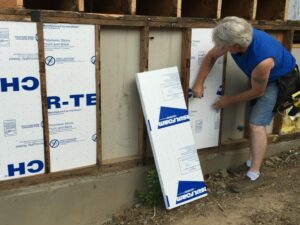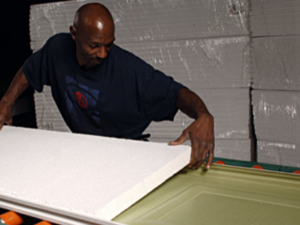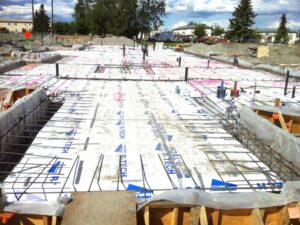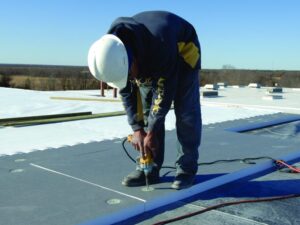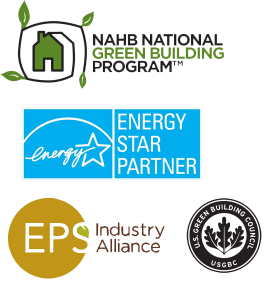A closer look at how EPS rigid foam insulation delivers moisture performance
 Expanded polystyrene (EPS) offers homeowners, do-it-yourselfers and residential building professionals a high-caliber insulation material. EPS exhibits several special characteristics, including a moisture-resistant composition, that truly sets it apart from comparable insulation options.
Expanded polystyrene (EPS) offers homeowners, do-it-yourselfers and residential building professionals a high-caliber insulation material. EPS exhibits several special characteristics, including a moisture-resistant composition, that truly sets it apart from comparable insulation options.
In application, EPS’ hydrophobic, closed-cell structure does not readily absorb moisture from the atmosphere. This means the insulation material delivers excellent moisture-resistance and in turn, can mitigate the risk of mold growth in a variety of applications, including walls, below-grade spaces and roof systems. EPS’ resistance to moisture and inherent breathability also plays a critical role in maintaining its stable, long-term thermal performance.
But what happens if EPS rigid foam gets wet?
Moisture’s negative effect on EPS rigid foam insulation
Imagine stepping out into the cold winter air equipped with warm, dry clothing. Since our bodies are well insulated, they do not have to work in overdrive to stay warm. Now, were we to get those same clothes wet, our body would have to work much harder to protect ourselves from the cold winter air. This is because water conducts heat much better than textiles do, and damp clothing provides an easier pathway for heat to escape from skin. These same principles apply to insulation.
Studies back EPS’ moisture-resistant nature, reliable thermal performance
To its benefit, a study by the Energy Materials Testing Laboratories (EMTL) proved that EPS installed in a well-constructed roof system does not absorb appreciable moisture, even under conditions characteristic of prolonged, cold, damp winters. The same amount of moisture absorbed (an average of 0.2 percent by weight) has little or no effect on its compressive or flexural strength, and the material retains between 95 and 97 percent of its thermal efficiency.
Looking ahead
A moisture-resistant and highly breathable insulation material, EPS brings critical performance qualities to the table. Its ability to dispel moisture can in turn, mitigate the risk of mold growth, ensure long-term thermal performance and support a comfortable, energy-efficient building envelope.
There’s so much more information to “soak” up (pun intended) on the proven performance of EPS, so consider turning to industry resources, such as the EPS Industry Alliance or our in-house EPS insulation experts.

